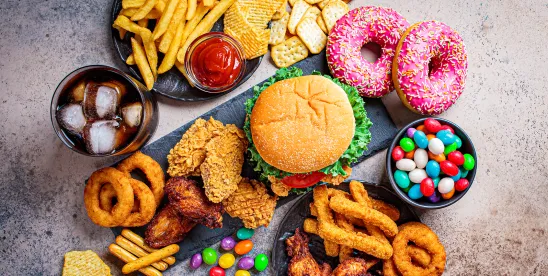California Enacts Groundbreaking Law Banning Ultra-Processed Foods in Schools

California has taken a significant step in public health by enacting legislation to ban ultra-processed foods (UPFs) in public schools. On October 8, 2025, Governor Gavin Newsom signed the Real Food, Healthy Kids Act, marking the first law at both state and federal levels to regulate UPFs in educational institutions. This legislation aims to phase out these highly processed food and beverage products, reflecting a growing awareness of their potential health impacts.
The law mandates that the phaseout of UPFs must begin no later than July 1, 2029. By July 1, 2033, outside vendors will be prohibited from offering UPFs and “restricted school foods” in California schools. Additionally, school cafeterias are required to stop serving meals containing these products by July 1, 2035. Notably, there is an exception for items sold during fundraising events.
The Act broadly defines UPFs to include any food or beverage containing additives such as thickeners, flavor enhancers, and artificial colors, as well as those high in saturated fats, sodium, or added sugars. To clarify these definitions, the California Department of Public Health is tasked with adopting a regulatory definition of UPFs and “restricted school foods” by June 1, 2028. Furthermore, the California Office of Environmental Health Hazard Assessment, in collaboration with the University of California, will identify a subgroup of “particularly harmful” UPFs that must be eliminated from school meals by 2032.
The focus on UPFs extends beyond California, as legal challenges surrounding these products have gained traction nationwide. A notable case is Martinez v. Kraft Heinz Co., originally filed in Pennsylvania state court in December 2024 and later transferred to the U.S. District Court for the Eastern District of Pennsylvania in January 2025. The plaintiff alleges that eleven major food and beverage manufacturers produced and aggressively marketed UPFs, which led him to develop two chronic illnesses by the age of sixteen. The complaint claims that these companies intentionally designed UPFs to be both satiating and addictive, fully aware of their long-term negative health implications.
Although the court initially granted the defendants’ motion to dismiss in August 2025, the plaintiff filed a motion for leave to amend the complaint in September. On October 3, 2025, the court issued a scheduling order for responses on this motion, paving the way for further developments in the case.
In addition to state-level initiatives, federal regulators are also addressing UPFs. On July 25, 2025, the Food and Drug Administration (FDA), alongside the Departments of Agriculture and Health and Human Services, issued a request for information aimed at developing a uniform definition of ultra-processed foods for the U.S. food supply. Public comments on this initiative are due by October 23, 2025. This initiative is part of the Administration’s “Make America Healthy Again” campaign and indicates a growing federal interest in tackling the role of UPFs in public health.
As legislation and litigation regarding UPFs continue to evolve, stakeholders in the food and beverage industry must stay informed about ongoing developments. The landscape of UPF regulation and related legal challenges is likely to shift further, prompting an urgent need for companies to adapt to new standards and consumer expectations. The implications of California’s pioneering law may resonate throughout the country, setting a precedent for other states to follow. Future updates will reveal additional regulatory measures and critical rulings in cases like Martinez v. Kraft Heinz Co. and other significant UPF-related lawsuits.






